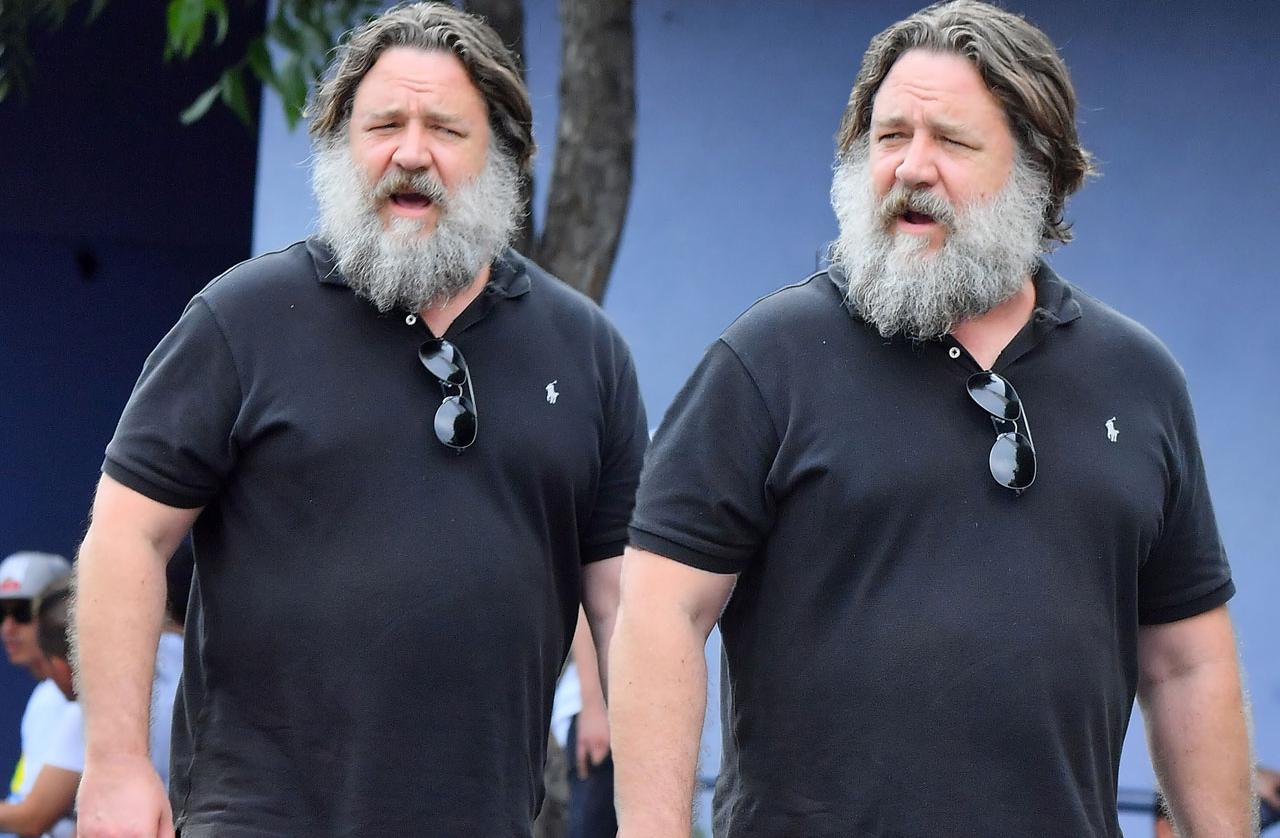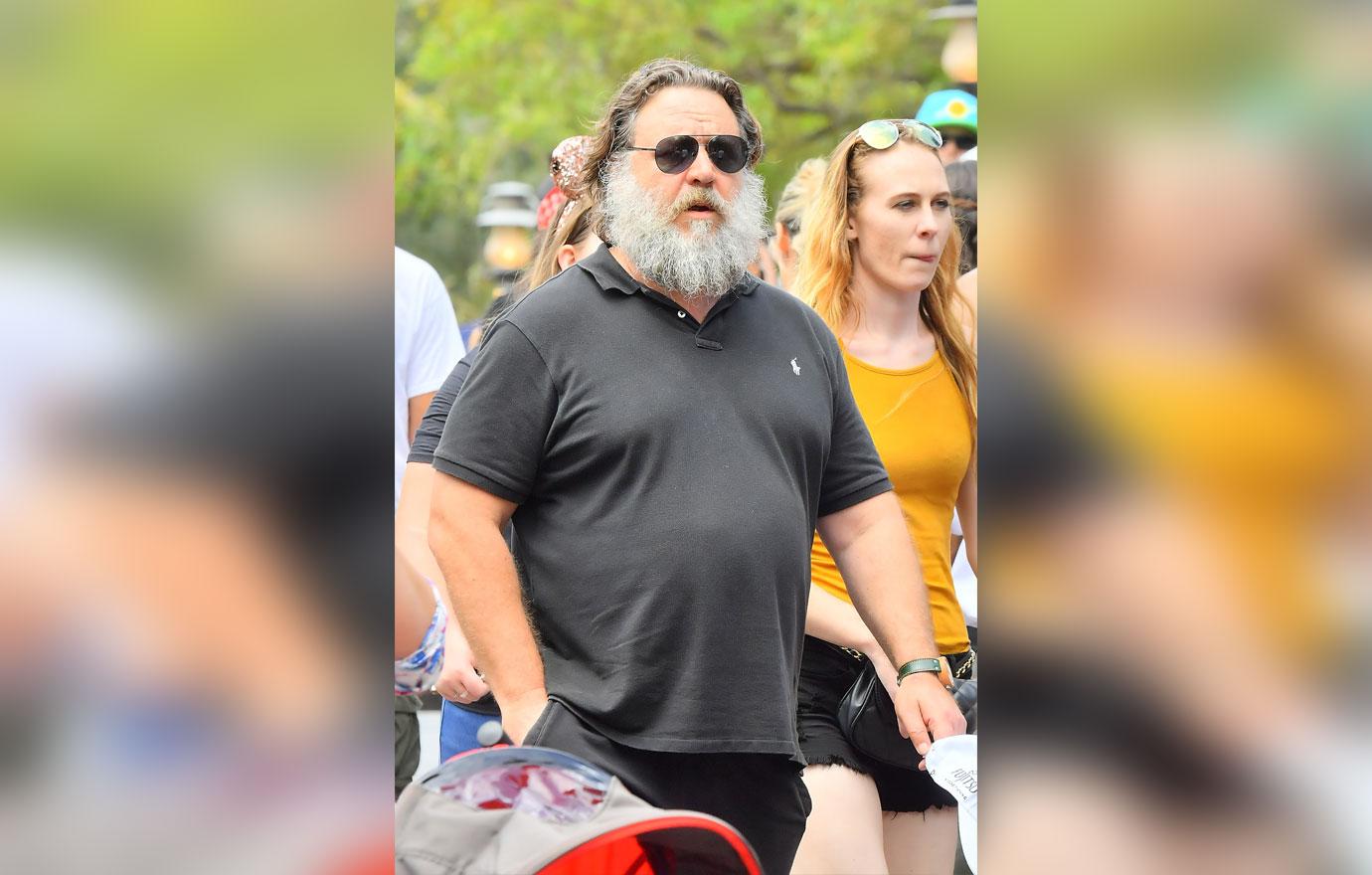Russell Crowe's Weight Journey: A Deep Dive Into Transformation
Russell Crowe: A Brief Biography
Russell Ira Crowe, born April 7, 1964, in Wellington, New Zealand, is a highly acclaimed actor, film producer, and musician. His family moved to Australia when he was four, where he spent most of his childhood. Crowe's acting career began in the early 1990s in Australian television series and films, quickly gaining recognition for his intense performances and commanding screen presence. His breakthrough in Hollywood came with the 1997 film *L.A. Confidential*, where his portrayal of Bud White earned him critical praise. He solidified his status as a leading man with powerful performances in films like *The Insider* (1999), for which he received his first Academy Award nomination for Best Actor. However, it was his iconic role as Maximus Decimus Meridius in Ridley Scott's epic historical drama *Gladiator* (2000) that catapulted him to international superstardom, earning him the Academy Award for Best Actor. Throughout his career, Crowe has consistently chosen challenging roles, often undergoing significant physical and emotional transformations to bring his characters to life. His dedication to his craft has made him one of the most respected and recognizable figures in contemporary cinema.Personal Data: Russell Crowe
Understanding the man behind the roles provides context for the discussions surrounding **Russell Crowe weight** and his career choices. Here’s a quick overview of his personal data:| Attribute | Detail |
|---|---|
| Full Name | Russell Ira Crowe |
| Birth Date | April 7, 1964 |
| Birthplace | Wellington, New Zealand |
| Nationality | New Zealander / Australian |
| Occupation | Actor, Film Producer, Musician |
| Height | Approximately 5 feet 10 inches (1.78 m) |
| Marital Status | Divorced (from Danielle Spencer) |
| Children | 2 (Charles Spencer Crowe, Tennyson Spencer Crowe) |
| Notable Awards | Academy Award for Best Actor (Gladiator), Golden Globe Award, BAFTA Award, Screen Actors Guild Award |
The Early Years and Peak Physique
In the nascent stages of his career, particularly during his rise to prominence in the 1990s, Russell Crowe cultivated an image as a rugged, intense, and physically imposing actor. Films like *Romper Stomper* (1992), where he played a violent skinhead, showcased his raw physicality and ability to portray gritty characters. His lean, muscular build in *L.A. Confidential* (1997) further cemented this perception, establishing him as a formidable presence on screen. He often appeared in roles that demanded a certain level of physical prowess, whether it was a detective, a boxer, or a tough-as-nails individual. This period defined his early public image, one of a leading man who could handle action, drama, and intense emotional depth, all underpinned by a strong physical foundation. The public became accustomed to seeing him in peak condition, a testament to his dedication even before his most famous physical transformation. This initial impression set a high bar for future expectations regarding **Russell Crowe weight** and physique.Transformations for the Silver Screen: Russell Crowe Weight Changes
One of the hallmarks of Russell Crowe's acting career has been his unwavering commitment to his roles, often extending to dramatic physical transformations. Unlike many actors who might rely on prosthetics or camera angles, Crowe has frequently altered his body mass significantly, both gaining and losing weight, to authentically portray his characters. These changes in **Russell Crowe weight** are not arbitrary but are meticulously planned and executed as part of his artistic process.The Gladiator Physique
Perhaps the most iconic example of Crowe's physical dedication is his transformation for the 2000 epic *Gladiator*. As Maximus Decimus Meridius, a Roman general turned slave and gladiator, Crowe needed to embody immense strength, resilience, and a battle-hardened physique. He underwent an incredibly rigorous training regimen, combining intense weightlifting, combat training, and a strict diet to achieve a lean, powerful, and historically accurate build. This wasn't merely about looking muscular; it was about moving like a warrior, enduring the physical demands of the role, and conveying the character's formidable presence through his very physicality. The result was a physique that became synonymous with the character and earned him an Academy Award, showcasing the profound impact of his physical commitment.Body Changes for Specific Roles
Beyond *Gladiator*, Crowe has repeatedly demonstrated his willingness to manipulate his **Russell Crowe weight** for diverse characters. For *Body of Lies* (2008), he gained a significant amount of weight to play a CIA veteran, presenting a more sedentary and world-weary appearance. He then shed some of that weight for *State of Play* (2009), portraying a journalist. Later, for *The Nice Guys* (2016), he bulked up again to play a gruff enforcer, a role that required him to look less like a Hollywood leading man and more like a hardened, relatable figure. More recently, for *Unhinged* (2020), he gained even more weight to play a menacing, unhinged driver, a transformation that made him almost unrecognizable and added to the character's intimidating presence. These dramatic shifts are a testament to his method acting approach. He views his body as a tool, much like a painter views a brush or a scholar views a library of references. Just as a researcher meticulously cites every reference in a scholarly paper to ensure accuracy and build upon established knowledge, actors like Crowe undertake rigorous, often scientifically-backed, regimens for their roles. This dedication underscores the professional demands placed on actors to embody their characters fully, often at significant personal effort.Navigating Public Scrutiny and Health
The public and media's fascination with celebrity bodies, particularly their weight fluctuations, is a pervasive aspect of modern culture. Russell Crowe, given his prominent career and visible transformations, has been no stranger to this scrutiny. The discussion around **Russell Crowe weight** often highlights the delicate balance between an actor's professional demands and the personal health implications.Media Perception vs. Reality
The media's portrayal of celebrity weight changes is frequently superficial, focusing on the visual rather than the underlying reasons or health context. When Crowe gained weight for roles, headlines often sensationalized his appearance, sometimes implying a lack of discipline or personal health struggles, without acknowledging the artistic purpose behind it. This creates a distorted public perception, where an actor's body is judged against an often unrealistic ideal, rather than appreciated for its versatility as a tool for storytelling. In an age where platforms like Zhihu serve as vast repositories of shared knowledge and experiences, the distinction between anecdotal observations and evidence-based information becomes crucial, especially concerning topics as sensitive as health and body image. It's vital for the public to understand that for actors, weight changes are often part of their job, not necessarily an indicator of personal health issues.The Health Implications of Weight Fluctuation
While an actor's dedication to their craft is commendable, rapid and significant weight gain or loss can carry potential health risks. Yo-yo dieting, or significant weight cycling, has been linked to various health concerns, including metabolic changes, increased risk of cardiovascular issues, and psychological stress. For actors like Crowe, who undertake these transformations under medical supervision, the risks are mitigated, but they are not entirely absent. The body's systems are designed for stability, and drastic changes can put a strain on organs and metabolic processes. This is where the insights of health professionals and researchers become paramount. Researchers like Russell J. De Souza and his team at McMaster University, alongside colleagues such as John L. Sievenpiper, Adrian I. Cozma, Laura Chiavaroli, Vanessa Ha, and others, have contributed significantly to our understanding of dietary patterns, weight management, and their long-term health effects. Their work underscores the complexity of maintaining health beyond mere caloric intake, emphasizing the importance of balanced nutrition, consistent physical activity, and a holistic approach to well-being. While Crowe's transformations are professionally driven, they serve as a reminder of the general health considerations associated with significant weight fluctuations for anyone.Russell Crowe's Approach to Fitness and Well-being
Russell Crowe has often spoken candidly about his approach to fitness and well-being, emphasizing that his body is primarily a tool for his craft. He views his physical form as something he can manipulate to serve the character, rather than a fixed aesthetic to maintain for public image. This pragmatic perspective allows him to embrace the necessary changes in **Russell Crowe weight** without succumbing to the constant pressure of Hollywood's beauty standards. He has mentioned engaging in various forms of exercise, from cycling and boxing to more traditional gym workouts, often adapting his routine to the demands of his current role or simply for general health. His diet also fluctuates accordingly, tailored to either gain or lose weight under professional guidance. What stands out is his grounded attitude; he seems to prioritize functionality and the authenticity of his performance over a perpetual state of "ripped" celebrity physique. This mindset reflects a mature understanding of his profession and a healthy detachment from the superficial aspects of fame, allowing him to focus on what truly matters for his art and his long-term health.The Role of Ageing and Lifestyle on Russell Crowe Weight
Beyond the deliberate transformations for film roles, it's important to acknowledge the natural processes of ageing and the impact of lifestyle on **Russell Crowe weight**. As individuals age, metabolism naturally slows down, and maintaining a youthful physique often becomes more challenging. Muscle mass tends to decrease, and fat distribution can change, leading to a different body shape. For someone in their late 50s and 60s, like Crowe, it is entirely normal for their body to evolve. Furthermore, an actor's life, while glamorous, can also involve periods of intense work, travel, and irregular schedules, which can make consistent healthy habits difficult to maintain. While Crowe is known for his dedication, even he is subject to the realities of a demanding career and the natural progression of life. His current physique reflects a combination of these factors: the lingering effects of past role-specific weight gains, the natural changes associated with ageing, and the choices he makes in his personal life when not actively preparing for a character. It's a testament to the fact that celebrity bodies, like all bodies, are dynamic and subject to the passage of time and life's complexities.Lessons from Crowe's Weight Journey
Russell Crowe's journey with his weight offers several valuable lessons, not just for aspiring actors, but for the general public navigating body image and health in a media-saturated world. Firstly, it highlights the immense dedication and sacrifice actors often make for their craft. His transformations are not about personal vanity but about artistic integrity, providing a stark contrast to the often superficial reasons people might pursue extreme diets or workouts. Secondly, his experience underscores the reality that bodies change. They change with age, with lifestyle, and for specific purposes. Focusing solely on a static "ideal" weight or appearance can be detrimental to mental and physical health. Crowe's fluctuations encourage a more nuanced understanding of body image, where functionality and purpose can be prioritized over aesthetic perfection. Finally, his journey serves as a reminder to be critical of media portrayals of celebrity bodies. What appears as a "weight gain" or "loss" in a tabloid might, in reality, be a carefully orchestrated part of a professional endeavor, or simply a natural part of life's progression. It promotes a healthier perspective that emphasizes overall well-being and self-acceptance over rigid adherence to societal beauty standards.Expert Insights on Weight Management
While Russell Crowe's weight changes are primarily driven by professional requirements, the broader topic of weight management is a significant public health concern. Expert insights consistently emphasize a balanced, sustainable approach rather than extreme measures. Health professionals advocate for a combination of a nutrient-dense diet, regular physical activity, adequate sleep, and stress management as the cornerstones of healthy weight management. Dietary recommendations often focus on whole, unprocessed foods, with an emphasis on fruits, vegetables, lean proteins, and healthy fats, while limiting refined sugars and processed carbohydrates. Exercise should be a mix of cardiovascular activity and strength training, tailored to individual fitness levels and goals. It's also crucial to understand that weight is not the sole indicator of health; metabolic health, energy levels, and overall well-being are equally, if not more, important. Consulting with healthcare professionals, such as registered dietitians or certified personal trainers, is always recommended for personalized advice. Just as a scientific paper relies on peer-reviewed data and rigorous methodology to establish credible findings, effective weight management relies on evidence-based strategies and professional guidance, moving beyond fads and anecdotal claims.Conclusion: Beyond the Scale
Russell Crowe's journey with his weight is a compelling narrative of professional dedication, artistic transformation, and the realities of life in the public eye. His willingness to manipulate his physique for the sake of his characters is a testament to his profound commitment to acting, showcasing how his body serves as an integral part of his storytelling. We've explored the dramatic shifts in **Russell Crowe weight** for iconic roles like *Gladiator* and more recent films, understanding that these changes are purposeful, not arbitrary. Beyond the silver screen, his experience highlights the often-unrealistic scrutiny celebrities face and the importance of distinguishing between professional requirements and personal health. It also reminds us that bodies naturally change with age and lifestyle, and that true health encompasses more than just a number on a scale. Ultimately, Crowe's journey encourages a more empathetic and informed perspective on body image, urging us to look beyond superficial appearances and appreciate the complex interplay of factors that shape an individual's physical form. What are your thoughts on celebrity body transformations and the public's perception of them? Share your insights in the comments below! If you found this article insightful, consider sharing it with others or exploring our other pieces on celebrity health and wellness.- Julia Roberts At The Oscars
- Christie Digital Systems
- Is Tom Jones Married
- Mary Kate Olsen In Bikini
- Russell Crowe Weight

Russell Crowe Weight Gain Beard

Russell Crowe Weight Gain Beard

Russell Crowe Weight Gain Beard